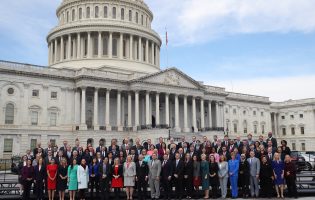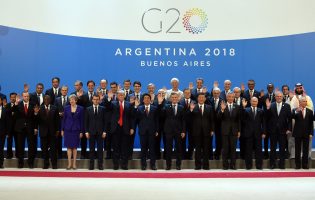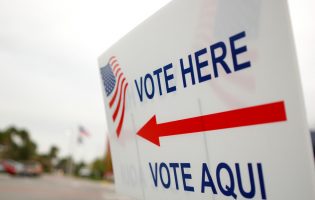
Europe Faces Open Doors but Uphill Battles with New Congress
“The U.S. is bigger than the White House,” declared German foreign minister Heiko Maas in a recent interview. In response to President Trump’s well-documented ambivalence toward alliances, German leaders are …

How Much Can Education Serve as a Mechanism for the Integration of Minorities and Immigrants?
Experiences from Germany and the United States In both the United States and Germany education is key for the successful integration of society and an acceptance of diversity. Diversity education, …

A G20 Reality Check Eases Global Trade Tensions
Less is more, said the German Bauhaus architect Ludwig Mies van der Rohe. That may be the inspiration behind the fewer than 100 words the G20 leaders devoted to trade …
Recent Authors
AGI provides knowledge, insights, and networks as tools to solve the challenges ahead.
Support Our Work
Remembering George H. W. Bush and Germany: A True Partner in Leadership
The death of former president George H. W. Bush will be mourned in Germany as well as in his home country. He was, along with Harry Truman, the most consequential …

Rainbow Politics: Comparing LGBT+ Rights in Germany and the United States
On October 1, 2017, Karl Kreile and Bodo Mende exchanged vows at the town hall in Schöneberg—the first same-sex couple married in Germany. More than two years earlier, the United …

Report and Executive Summary: Bonn International Security Forum
From November 18-20, 2018, the Center for International Security and Governance (CISG) of Bonn University and the American-German Institute (AGI) of Johns Hopkins University hosted the third Bonn International Security …
Episode 03: Burdensharing within NATO: Do more, spend more?
No relationship is without its difficulties and disagreements, not even between societies as close as the U.S. and Europe. For almost as long as NATO has existed, Washington has wanted …

The Radicalization of the Extreme Right
The Rallies in Charlottesville in August 2017 and Chemnitz in August 2018 In August 2017, members of multiple far-right movements rallied in Charlottesville, Virginia, with the goals of uniting the …

The 2018 Midterm Elections: The Transatlantic Alliance Outside the DC Beltway
As a DAAD/AGI Research Fellow from October to November 2018, Dr. Niklas Helwig analyzed U.S. domestic perception of the transatlantic alliance during the 2018 midterm elections. Lately, the U.S. administration has …

Transatlantic Relations after the Midterms
A Fresh Start or Further Decline? Since President Trump began implementing his vision of “America First” two years ago, European partners have been concerned whether a more unilateral and transactional …





